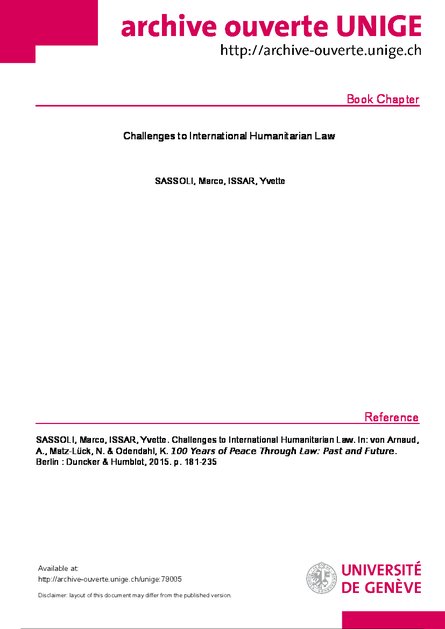
Efforts to reduce the suffering unleashed by war through rules of conduct for belligerents are not a uniquely modern phenomenon. They have been with humanity for centuries, and as such, the origins of present-day International Humanitarian Law (IHL) can be traced to ancient times. However, the manner in which these efforts have been articulated has undergone significant changes over time. Taking stock of the corpus of IHL today it is clear that, as it has developed, IHL has enjoyed significant successes. Although this contribution deals with contemporary challenges to IHL, we will nevertheless first summa- rise some impressive successes achieved over the last 150 years, to avoid paint- ing too bleak a picture of this branch of law which aims at ensuring a minimum of humanity in such fundamentally inhumane situations as armed conflicts. We will then discuss contemporary challenges to IHL, some of which result from the very nature of the situations to which it applies, while others may arguably be ascribed to certain problematic characteristics of modern warfare. Challeng- es concerning the substance of the law will be treated first, followed by what, in our opinion, is the main challenge, namely the insufficiency of mechanisms to ensure respect for already existing and largely adequate rules. To a large extent, these failings can be ascribed to a lack of political will on the part of States (and other actors) to follow through with effective implementation mecha- nisms. This article, written by lawyers and not political scientists, will focus on the legal challenges and attempt to offer suggestions that may help to effect change on, at least, the legal plane. As such, the final section will explore po- tential avenues for, and obstacles to, addressing the substantive and procedural challenges highlighted.